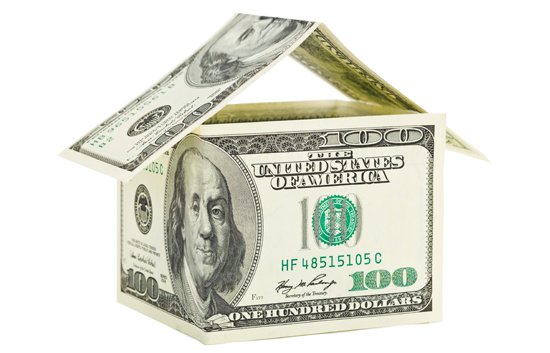Brought to you by , Funkhouser Real Estate Group, , scott@HarrisonburgHousingToday.com
Wednesday, January 29, 2014

Most people consider their home as a place to live, where families grow, and make memories together. But beyond simply serving as a shelter, your home may also be your largest financial asset. As such, at least from time to time, you should think of it in that light, and make decisions accordingly.
First, let’s examine the magnitude of your home as a financial asset. A young couple that purchases a $150,000 home at age 30 with 5% down will have paid it off by age 60, and will then have a $364,000 asset assuming 3% per year appreciation. A neighboring young couple that rented during that entire time frame would have needed to put over $600 per month (beyond their rental payment) into an investment account with a 3% return in order to match that $364,000 asset after 30 years. Thus, owning a home becomes a relatively simple way to accumulate savings that can later allow you to retire and have assets to use for your living expenses.
Given this potential for a significant future value wrapped up in one’s home, homeowners should spend the time, energy and money to care for and improving this asset over time. Keep ahead of the game with ongoing maintenance items such as changing furnace filters, having your HVAC system serviced, painting exterior trim, replacing interior flooring as needed, staining and sealing your deck, etc. Also, depending on how long you anticipate being in your current home, considering making some long term investments, such as planting trees and improving the overall landscaping of your home. The owning versus renting comparison doesn’t even fall apart here --- the cost of these improvements are indeed above and beyond your mortgage payments, but with a fixed mortgage interest rate, your principal and interest payment will remain steady over time, as compared to a rental rate that is bound to increase over time.
As you are likely to do as your life circumstances change, consider upgrading to a larger home to better suit your housing needs. Selling a home and then buying a new one involves some significant transaction costs which should not be taken lightly – but the cost of transitioning to a new home can be worthwhile if it works within your budget and works better for your family’s needs. From a financial perspective, this becomes a one-time transactional cost to upgrade your investment to a larger asset.
As you know, your home is much more than just a financial asset, but you must think about how your housing decisions affect your overall financial situation and the options you will (or will not) have in the future based on those housing decisions. Today’s low fixed mortgage interest rates provide a unique opportunity to lock in your housing costs for years to come, and as allow for a wonderful long term investment and savings plan. Whether you own a home now, or are considering a purchase, it is worthwhile to examine your hopes, goals and dreams, as well as the financial side of the equation.
